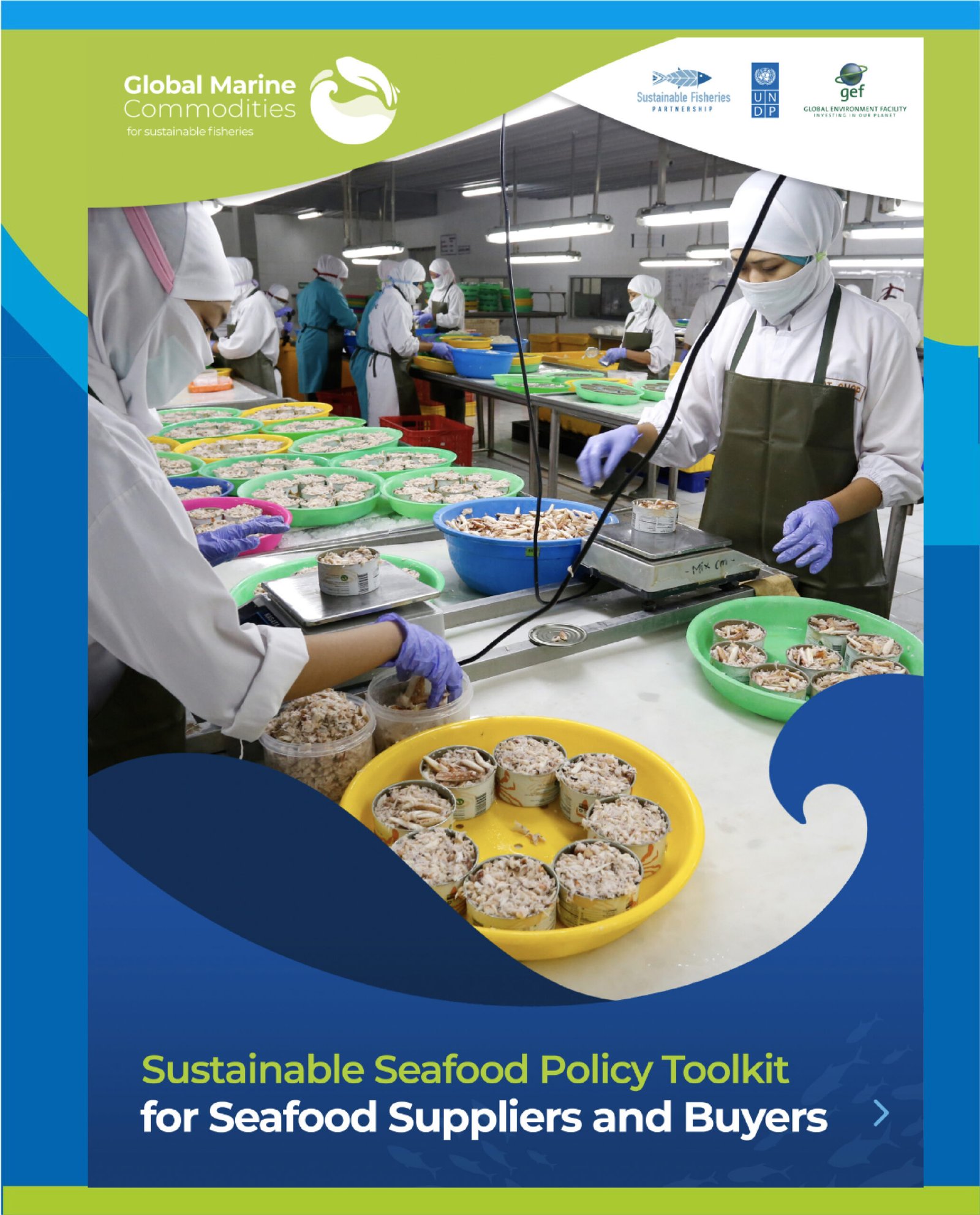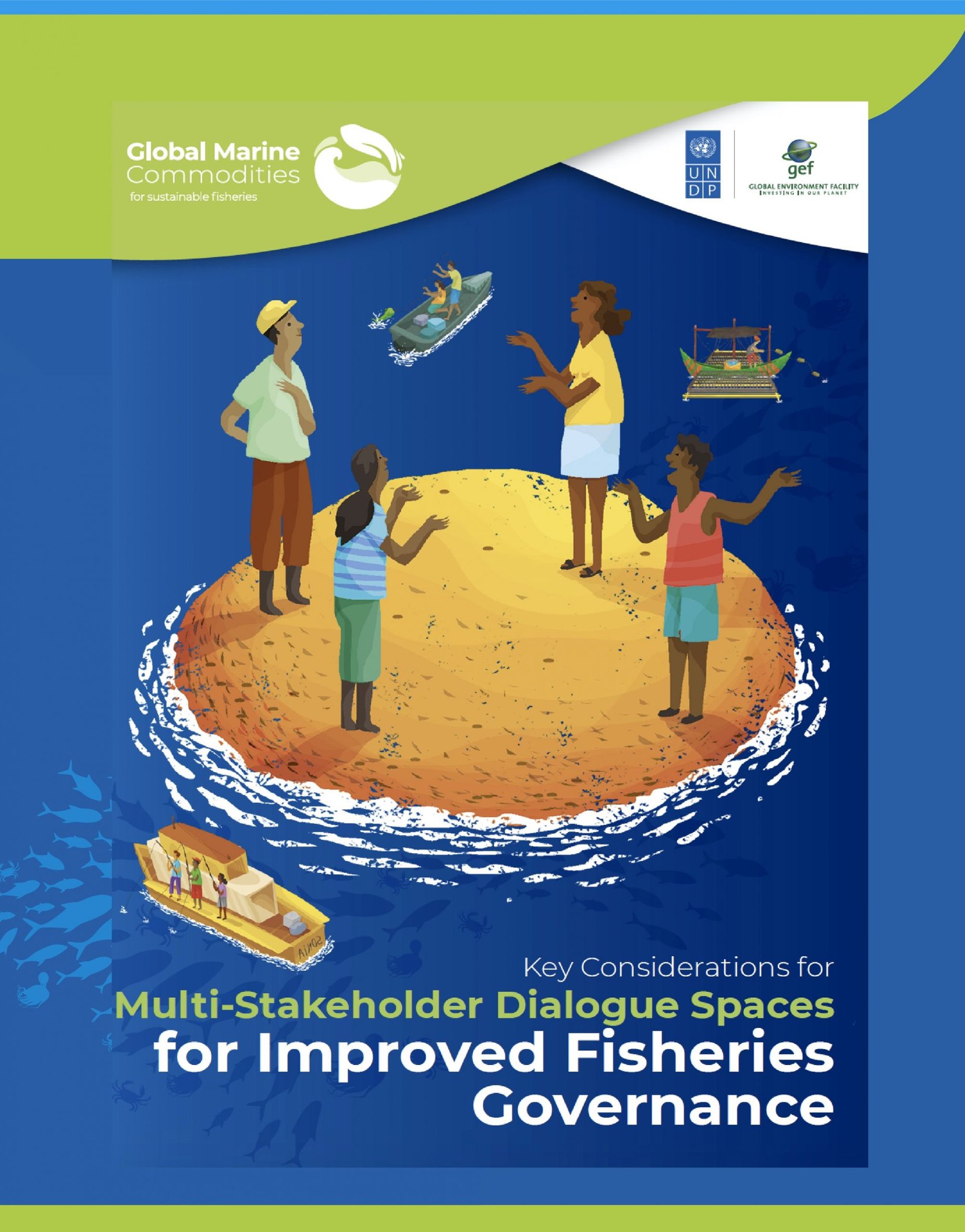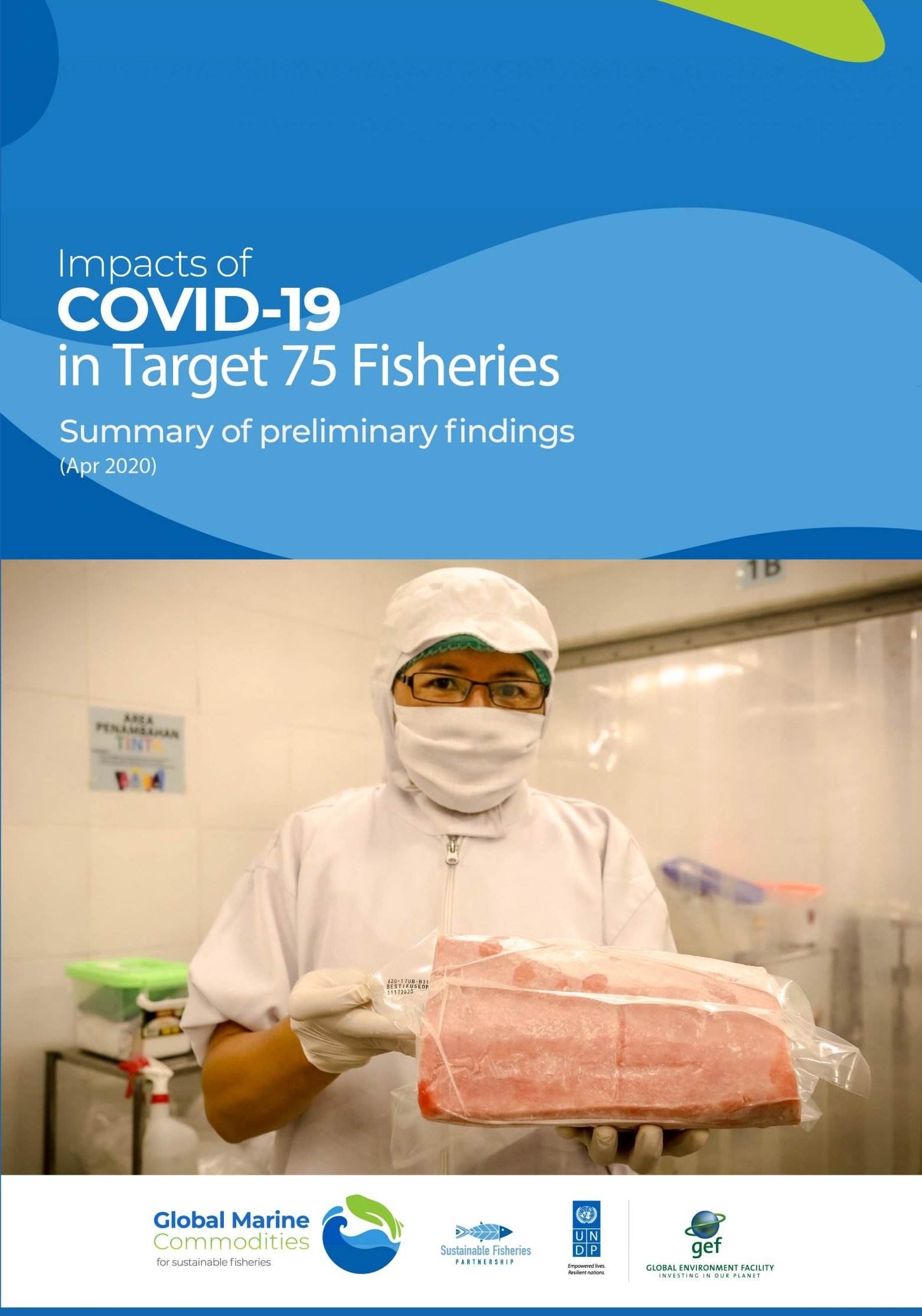Sustainable Seafood Policy Toolkit for Seafood Suppliers and Buyers

Abstract:
The present brief provides a high-level overview about the impact of COVID-19 in some T75 fisheries that are key for global seafood production and supply, and identifies the measures taken by vendors and suppliers and their perspectives for the near future. T75 fisheries are high-volume fisheries with product destined mainly for the export market. The final goal of this analysis is to inform the development of targeted interventions that can be implemented by SFP, as well as by other organizations and partners interested in providing support during the crisis.Organization(s): PNUD
Publication year: 2020
Keywords:
Geographic keywords:
Language(s): English
How useful was this document?
Share:
Pertimbangan Pokok untuk Ruang Dialog Multi-Pemangku Kepentingan untuk Tata Kelola Perikanan yang Lebih Baik


Abstract:
The United Nations Development Programme (UNDP) is committed to enabling people to share their goals,needs and commitment to managing the use of natural resources (water, forests, soils, fisheries) in a way that meets global sustainable development goals. The UNDP has been facilitating dialogues between people involved in a variety of commodities such as coffee, oil palm, soy, beef and cocoa. The move into seafood enabled this approach to be applied to seeking solutions to the well documented issues associated with overfishing and the inequitable distribution of benefits from the use of fishery resources. As publicly owned resources, fisheries are more likely to be sustainable when stakeholders are actively involved in the management process. The Sustainable Marine Commodity Platform approach ensures that those in the wider supply chain, who also have an interest in sustainable use, are proactively included.Organization(s): UNDP | SFP
Publication year: 2020
Keywords:
Geographic keywords:
Language(s): English
How useful was this document?
Share:
Lessons Learned from the Indonesian Western and Central Pacific Yellowfin and Skipjack Tuna Pole and Line FIP


Abstract:
In 2017, the Indonesian Western and Central Pacific Yellowfin and Skipjack Tuna Pole and Line Fishery Improvement Project (Tuna PL FIP) was launched. Its purpose is to address overexploitation of marine fisheries by mainstreaming sustainability in the fisheries supply chain. Stakeholder in this ongoing Project include fishers who are members of the Indonesian Industry Association for Pole and Line and Handline Tuna Fisheries (AP2HI), the International Pole and Line Foundation (IPNLF), and the Ministry of Marine Affairs and Fisheries (MMAF). The Tuna PL FIP journey provides an opportunity for fisheries stakeholders to extract lessons learned and identify the potential for replication and scaling up. This document provides ten essential lessons for fishing communities, scientists, and development workers.Organization(s): UNDP | SFP
Publication year: 2020
Keywords:
Geographic keywords:
Language(s): English
How useful was this document?
Share:
Key Considerations for Multi-Stakeholder Dialogue Spaces for Improved Fisheries Governance


Abstract:
The United Nations Development Programme (UNDP) is committed to enabling people to share their goals,needs and commitment to managing the use of natural resources (water, forests, soils, fisheries) in a way that meets global sustainable development goals. The UNDP has been facilitating dialogues between people involved in a variety of commodities such as coffee, oil palm, soy, beef and cocoa. The move into seafood enabled this approach to be applied to seeking solutions to the well documented issues associated with overfishing and the inequitable distribution of benefits from the use of fishery resources. As publicly owned resources, fisheries are more likely to be sustainable when stakeholders are actively involved in the management process. The Sustainable Marine Commodity Platform approach ensures that those in the wider supply chain, who also have an interest in sustainable use, are proactively included.Organization(s): UNDP | SFP
Publication year: 2020
Keywords:
Geographic keywords:
Language(s): English
How useful was this document?
Share:
Impacts of COVID-19 in Target 75 Fisheries


Abstract:
The present brief provides a high-level overview about the impact of COVID-19 in some T75 fisheries that are key for global seafood production and supply, and identifies the measures taken by vendors and suppliers and their perspectives for the near future. T75 fisheries are high-volume fisheries with product destined mainly for the export market. The final goal of this analysis is to inform the development of targeted interventions that can be implemented by SFP, as well as by other organizations and partners interested in providing support during the crisis.Organization(s): PNUD
Publication year: 2020
Keywords:
Geographic keywords:
Language(s): English
How useful was this document?
Share:

